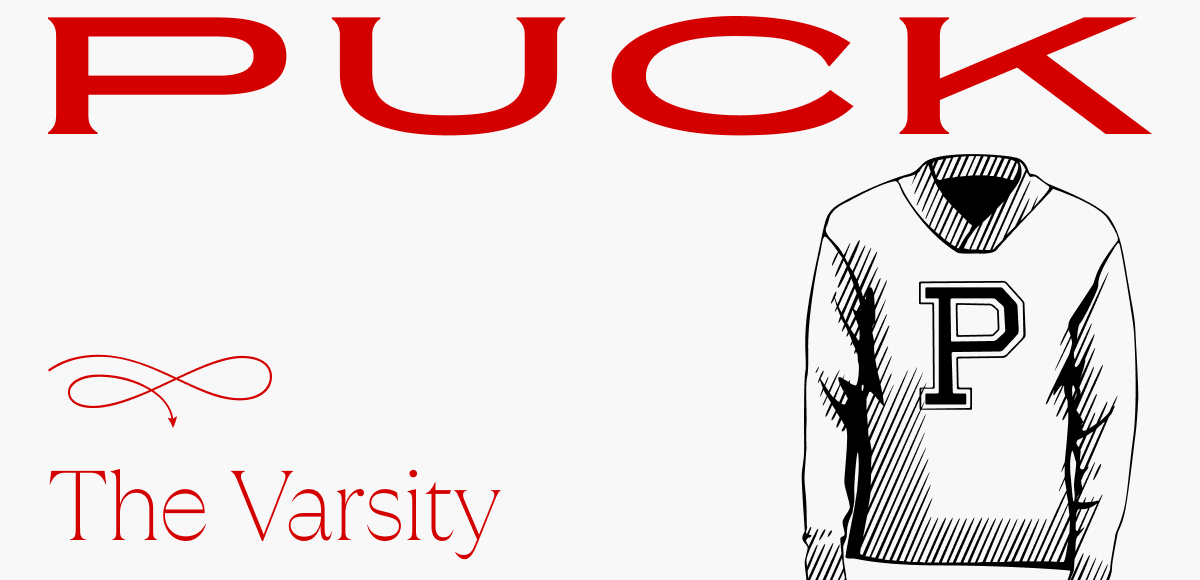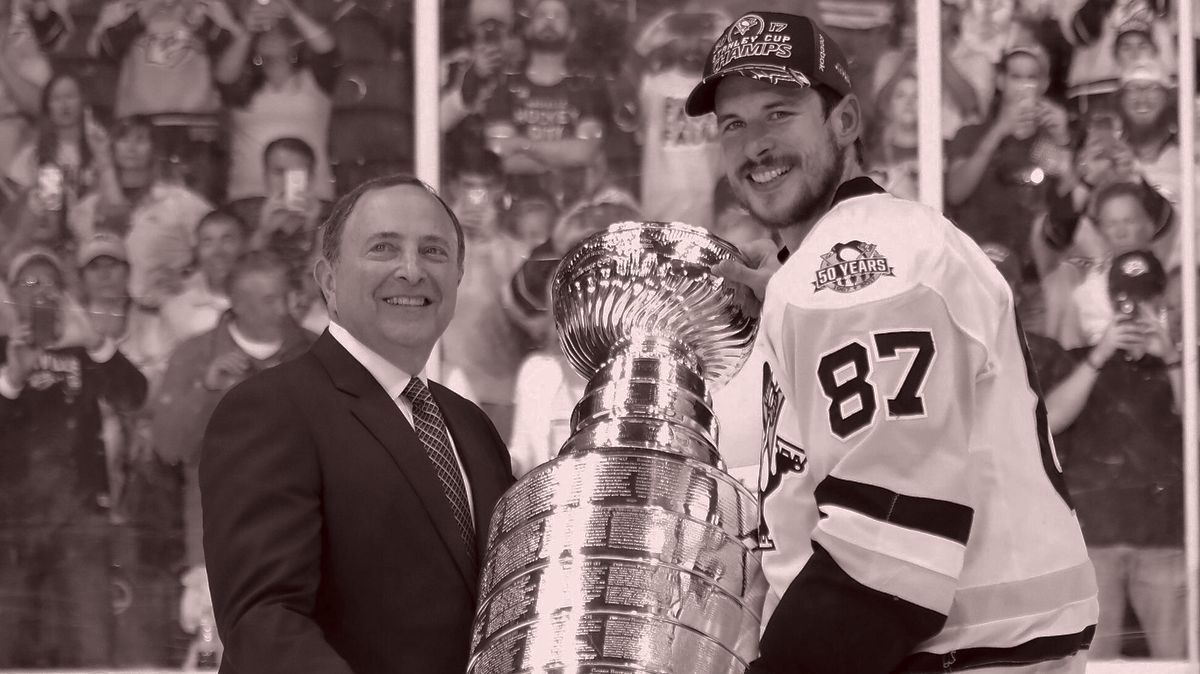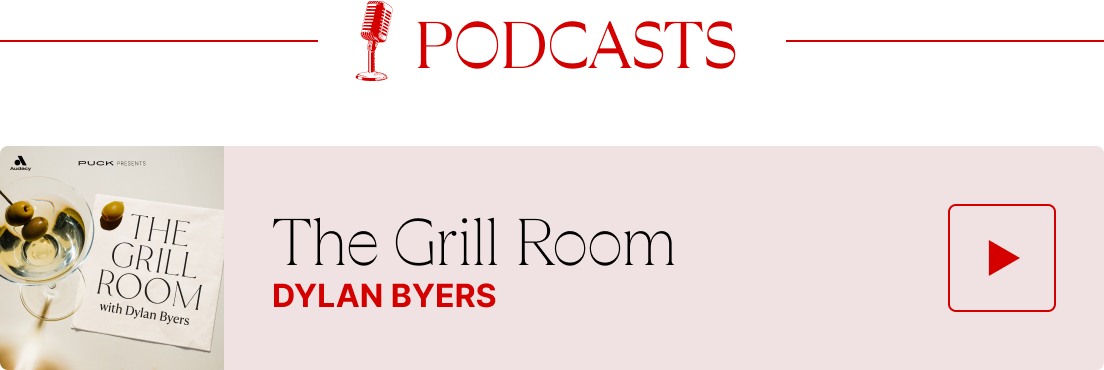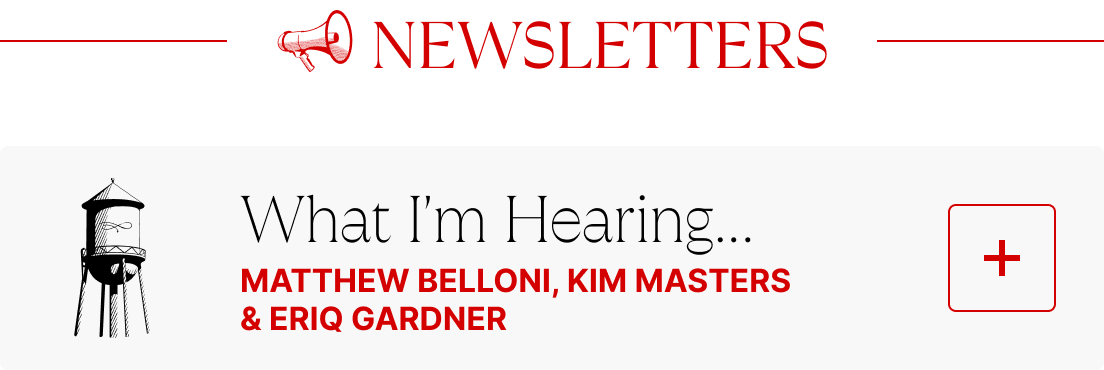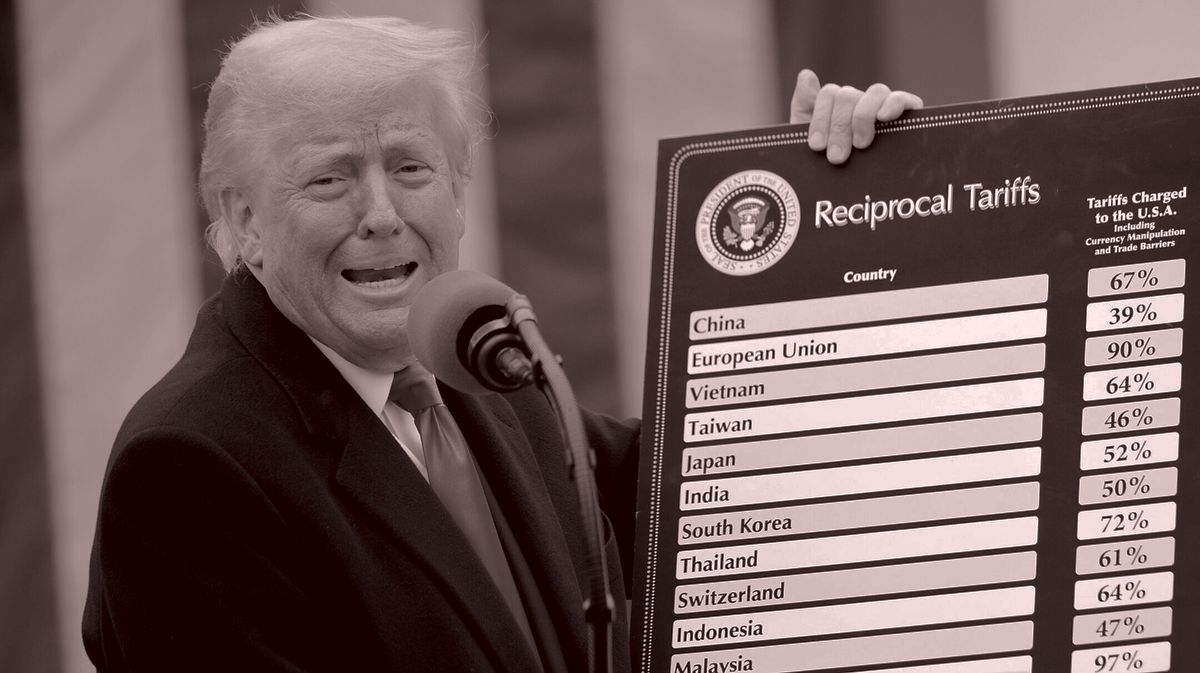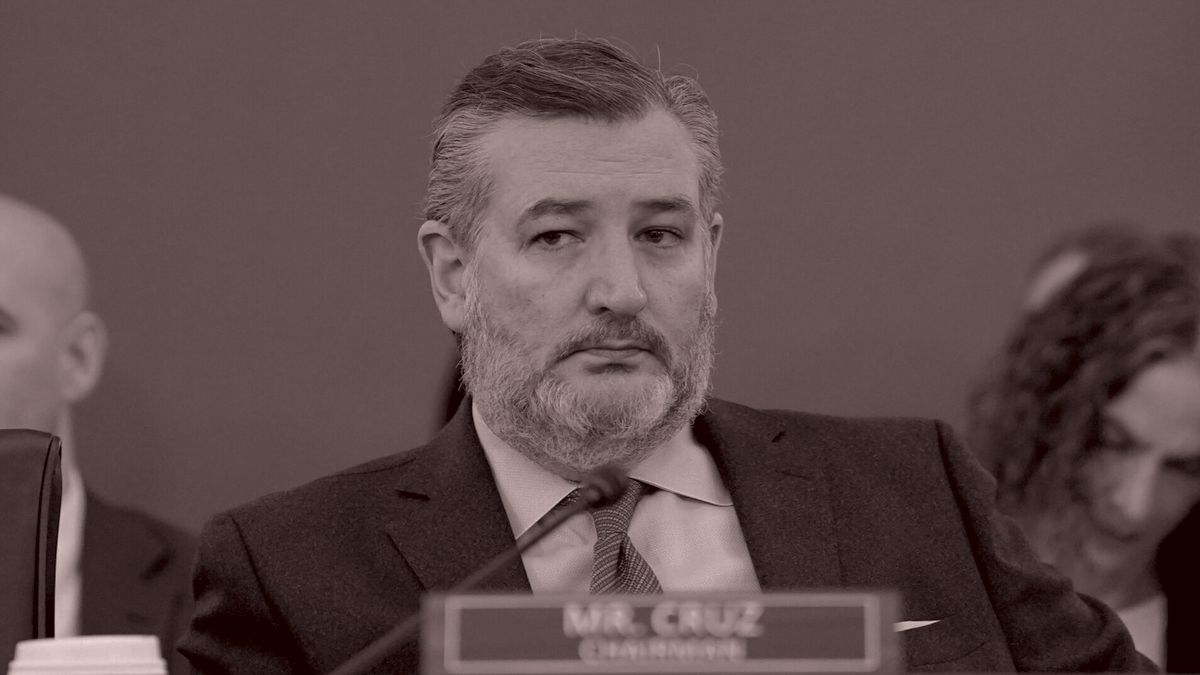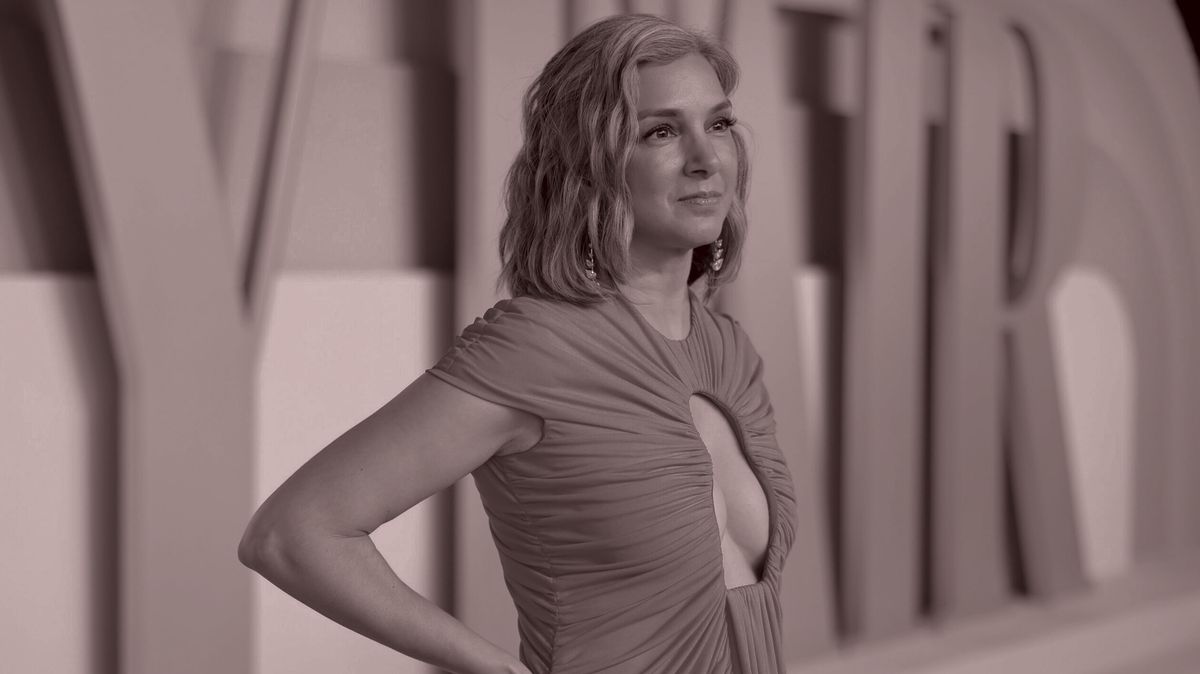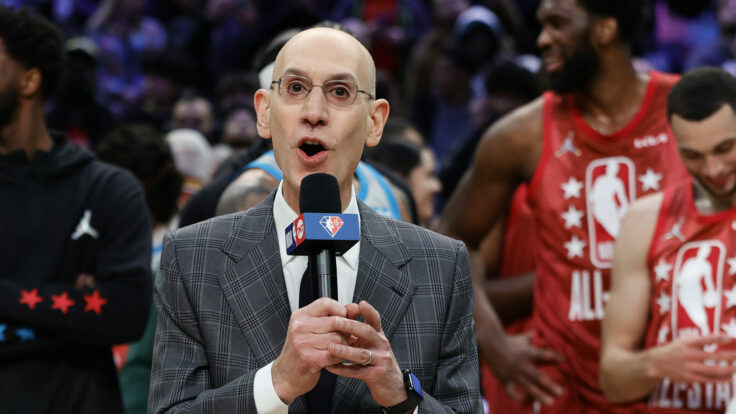Welcome back to The Varsity, my twice-weekly private email on the money, egos, and
egomaniacs that run the sports business. I’m in Las Vegas for the annual National Association of Broadcasters confab. Tomorrow, I’m on a panel with Jomboy Media’s Courtney Hirsch, Payne Media Group’s Will Payne, and Locked On Podcast Network’s Carl Weinstein. Drop by if you’re in town.
My travels take me to San Francisco next week, where I’ll be interviewing San Francisco Giants C.E.O. Larry Baer and Fox Sports S.V.P. of
strategy and analytics Ben Valenta for an event that Puck is hosting on Tuesday night with Tishman Speyer. If you’re interested in attending and you’re a Puck subscriber, email Eric Van Gelder to RSVP via Eric@puck.news. If you’re not a Puck subscriber, I’m going to sign you up for Marchand’s new Substack on reciprocal tariffs,
or you can fix that now by clicking here.
🚨🚨 Big news: Tomorrow, The Varsity expands to a third weekly issue, helmed by streaming savant Julia Alexander. This edition is available only to Inner Circle subscribers.
(Click here to upgrade.) The price of an upgrade is a bargain compared to what you used to pay for Julia’s advice at Parrot Analytics. Think of it as Botox for your brain.
Even more big news: Puck’s NCAA bracket pool has come down to the final game. If Florida wins, our brand designer, Isabella Lichauco, will own corporate bragging rights. V.P. Micah Robinson walks home a winner if Houston wins.
Me? I’m stuck in eighth place. For the record: No one picked Houston.
🎧 Pod alert: What better time to bring Puck superfan Peter Schrager back on The Varsity? I’m going to pepper the New Jersey–born matinee idol with questions about his move from NFL Network to ESPN. We’ll also tackle the biggest business issues facing the NFL. Meanwhile, thanks for the great feedback on my conversation with NHL commissioner Gary Bettman, which
came out yesterday. Look for more from the commissioner down below.
|
|
|
A MESSAGE FROM OUR SPONSOR
|
PERFORMANCE UNLEASHED
Agile, powerful, iconic. The Range Rover Sport is a dynamic SUV with a distinct
take on sporting luxury.
EXPLORE
|
|
|
- An era of bad feelings: Even before the Trump tariffs sent financial markets reeling, pessimism ruled the day among many of the 60,000 or so attendees at the National Association of Broadcasters show in Las Vegas. All the challenges facing the broadcasting business—from cord-cutting and the rise of streaming to outdated ownership rules and an ever-changing regulatory environment—took a back seat during the past two days to the crashing
markets. The main concern, of course, was that the equities crisis would lead to reduced ad spend that would cascade down to the broadcasting business. It’s no secret that marketing and advertising budgets are among the first things cut when the economy heads south. We’ll have much more from N.A.B. on Thursday, but that’s certainly been the biggest theme that I’ve noticed so far. Oh yeah, and ESPN’s $100 million man, Stephen A. Smith, was on hand today for a keynote presentation
where he reiterated that he has “no desire” to run for president, but is also “not going to rule it out.”
- The NCAA women’s tourney rights tickles: Judging by the recent comments from Geno Auriemma and Dawn Staley, the respective coaches of the UConn and South Carolina programs that met in yesterday’s women’s college basketball national championship game, you’d think the tourney’s media rights deal was about to expire.
Indeed, the coaches have contemplated the value of selling media rights to the tournament as a stand-alone asset, rather than bundled into its existing eight-year, $920 million contract with ESPN that also includes around 40 other league championships across various sports. The coaches ventured that the women’s hoops tourney would be worth much more on its own.
This is all moot, of course, because the rights aren’t up ’til 2032. But even if they were up soon, it’s
unlikely that NCAA president Charlie Baker would agree to sell the women’s tournament as a stand-alone. Back in 2023, when Baker was selling the NCAA package, the bids for the women’s tournament weren’t nearly high enough to justify breaking it off and leaving a bunch of the other championships exposed. And that was during the ratings-boosting Caitlin Clark era.
If Baker ever did decide to spin out the women’s tournament, what would the resulting
package—of lacrosse, gymnastics, field hockey, track, diving, etcetera—fetch? Baker, who hired Endeavor to negotiate last year’s deal, has to answer to an entire NCAA sports constituency—and his then-landmark deal represented a 300 percent increase over its predecessor arrangement. Importantly for the NCAA, the deal includes minimal production
expenses.
- Manfred speaks: Baseball commish Rob Manfred recently sat down with The New York Times’s Michael Schmidt for a wide-ranging Q&A that touched on media rights (Manfred predicts a streamer will pick up international rights in 2028), blackouts (they’re gone by
2028), and the growing gulf between big-market and smaller-market teams (“an existential problem”). The most interesting part of the interview, however, came when Manfred spoke about his recovery from a detached retina last year, which required him to lie face down, all day, for weeks at a time. “I read novels, and things that I would not ordinarily read, that I don’t have time to read,” Manfred said. “I did a lot of thinking about longer-term things. When you’re quiet like that, you have an
opportunity to think a little longer-term about what you’re trying to accomplish strategically and what tactics might work.”
- At deadline: I’ve been hyping yesterday’s head-to-head ratings competition between LIV’s Doral tournament on Fox and the PGA Tour’s Valero Texas Open on NBC. Alas, dear reader, you’re going to have to wait until tomorrow for the final numbers. LIV has yet to even come close to competing with the Tour’s TV ratings, but last
weekend in Miami, against a weakened PGA Tour field, gave LIV a puncher’s chance. Also, this afternoon, U.S. District Judge Claudia Wilken held a hearing to decide whether to approve a settlement between the NCAA and former D-1 athletes. Her decision, which will determine how college athletes should be paid, could be weeks away. Sportico’s Michael McCann
has a good explainer.
|
|
|

|
Julia Alexander
|
|
- A YouTube sports universe?: YouTube isn’t just dominating television, it’s also secretly reunifying it. Per new estimates from MoffettNathanson, YouTube TV is closing in on 9.5 million subscribers and is set to become the most popular pay TV package in the United States by the end of 2027. Parentco Google will surpass Comcast, Dish, and Charter by growing market share in a sector where everyone else is just trying to stay afloat.
The
power is in the combined ease of the entire system: There’s YouTube, the V.O.D. player, with more viewing share than any other media company in the U.S.; YouTube TV, the leading virtual television service; and Primetime Channels, Google’s answer to Amazon Prime Video channels. Between them, YouTube owns the technology that delivers the content, simplifies the content-discovery process, and monetizes both ends of the funnel.
YouTube TV’s execs have avoided local sports networks, perhaps
understandably so, because of the significant costs involved. But the business could become a strong sports partner at the national and local level, if YouTube TV finds a way to navigate add-ons with its Primetime Channels and get the offering in front of its growing audience. Amazon is already playing in this space. To wit: Main Street Sports has about 400,000 subscribers across its apps, now partnered through Prime Video channels. YouTube TV is seemingly building around the one thing that
everyone else is trying to destroy—the cable experience—and tying it all back together, rather than tearing it further apart.
|
|
|
And now on to the main event…
|
|
|
NHL commissioner Gary Bettman is on a hot streak: the innovative 4 Nations
Face-Off tournament in February, a new $7.7 billion media rights deal in Canada, and forthcoming sublicense negotiation. Here, he chats candidly about his travels through the platform realignment.
|
|
|
Gary Bettman has been on an impressive run over the past few months, buoyed by
the incredibly popular midseason 4 Nations Face-Off tournament and, in particular, his 12-year, $7.7 billion media rights deal with Rogers Communications. Bettman joined the Varsity podcast on Sunday for a wide-ranging discussion about the origins of the Rogers deal, what he learned from the success of 4 Nations, and the state of local media rights in the U.S. As always, these remarks have been edited for length and clarity.
|
On That $7.7 Billion
Deal…
|
John Ourand: You just cut a 12-year, $7.7
billion deal with Rogers for NHL media rights in Canada, doubling the size of the previous deal. Tell me the deal logic.
Gary Bettman: $11 billion [Canadian dollars]. It’s a Canadian deal in the Canadian market for Canadian rights.
$11 billion sounds better.
It’s more than a question of sounding better. I serve two constituencies in two countries. The magnitude of this,
particularly in the Canadian marketplace, deserves to be recognized. We used to have the largest deal in the history of Canadian media, not just sports. And this is two and a half times that.
Rogers sublicenses rights to Amazon, a deal that runs another year. Will that continue?
We’re going to see if we can do it directly with Amazon, or somebody else. Amazon’s been great, by the way, and as a result, there are parameters under
which we can do that. We’ll be doing the same things directly, if we can, with the French national rights as well, because, again, the marketplace up there is a little more complicated than it is south of the 49th parallel.
How did the tariffs and threats of a trade war play into your negotiations?
They didn’t. This is a 12-year deal, so we’re looking at this for the long term. We should stay out of the geopolitical debates. But
when asked about the impact of all this from my standpoint, Canada and the U.S. are longtime great allies, two great countries. I hope this is just a moment in time that we get through quickly. If this has an impact on the Canadian economy, and it affects the relationship with the Canadian dollar and the U.S. dollar, that may pose some difficulties for our Canadian franchises—because our players, whether they play in the United States or Canada, get paid in U.S. dollars. So that’s something that
we’re going to have to focus on if it becomes a problem. But again, my hope is that it doesn’t.
|
Gary, you solved the all-star game crisis. Major League Baseball is trying to
solve it. The NBA is trying to solve it. Your 4 Nations was so popular, I had neighbors who aren’t hockey fans talk to me about it.
We didn’t have an all-star crisis. Our skills competition has always been well received. When we switched the All-Star Game to a winner-take-all with a big-pool three-on-three with mini-games—that was well received. We didn’t have a crisis. We weren’t getting criticized.
Having said that, we understood the
importance to our players, in particular, of representing their countries. That’s why we’re going back to the Olympics. That’s why we’re bringing back the World Cup. We’re going to do all of those on a regular cycle. This was an opportunity for us to reintroduce our fans, and the world, to how good international best-on-best competition can be in hockey. I understand that everybody is looking at other ways to do all-star games. There’s no substitute. And I talk about this all the time, as it
relates to our game—not about anybody else’s, but our game: Authenticity can’t be created or promoted or fabricated. It’s got to be the real deal.
|
|
|
A MESSAGE FROM OUR SPONSOR
|
PERFORMANCE UNLEASHED
Agile, powerful, iconic. The Range Rover Sport is a dynamic SUV with a distinct
take on sporting luxury.
EXPLORE
|
|
|
How do you build off 4 Nations?
You
continue to tell stories. You continue to highlight our players. You continue to talk about the elements that make our game so great. And you also focus on the fact that we’re planning to go to the Olympics next season, and then there’ll be a year break internationally, perhaps, and then the year after that, we’re going to do the World Cup. Every two years we’re going to be on an international cycle.
What happens next midseason? Will you go back to the traditional all-star
game?
We probably won’t do an all-star game. We’ll do something, but it’s going to be more focused on the Olympics. We have yet to finalize what we’re doing, but we also understand that the players who are playing in the Olympics are going to be very focused about getting to Milan. Whatever we do has got to reflect the authenticity of the moment.
|
It does appear that baseball is trying to put all of its local rights into one package
they can sell to streamers. The NBA is also looking into something like that. How do you view your local rights?
Local rights continue to be important. They’re probably not as financially important to us as they are to baseball and basketball. I also believe that sometimes our clubs are best able to focus on local. As some of the R.S.N.s were experiencing challenges, and were disappearing, our clubs—with our assistance—were looking at
alternatives, whether it was a streaming option over the top, or whether it was going back to the future on over-the-air. Las Vegas and Florida have their games on local broadcast, and that’s been extraordinarily well received.
Financially, the clubs have been doing well with it. I don’t think it’s a one-size-fits-all yet. There are going to be alternatives to R.S.N.s. We’re going to get to a point where no matter where you are, and who you want to watch, you’re going to be able to see
games. That’s what fans are going to demand. If you’re a Detroit Red Wings fan living in Vancouver, or in California, you want to watch your games. Ultimately, everybody’s going to evolve to a more national footprint.
And the situation you described will come without the blackouts that had been created by R.S.N.s.
It’s not tomorrow. It may not even be three or four years. But it’s evolving. There’s still going to be an important
role for local coverage, and—whether it’s over-the-air, or surviving R.S.N.s—that is an important element of the fan connection.
|
On Alex Ovechkin’s convening power: “It took the greatest pure goal scorer in NHL history
to do it, but at least I was able to watch the Islanders on TV on Sunday! A bonus: I got to see history being made and the Islanders somehow win.” —A frustrated Hulu subscriber who can’t watch his Islanders
On Nike’s problems: “Did you really blame Elliott Hill for Nike’s stock fall when he’s been on the job for five months? Tsk, tsk…” —A Nike shareholder for 20+ years
|
|
|
Finally, a media podcast about what’s actually happening in the media—not the oversanitized,
legal-and-standards-approved version you read online. Join Dylan Byers, Puck’s veteran media reporter, as he sits down with TV personalities, moguls, pundits, and industry executives for raw, honest, sometimes salacious conversations about the business of media and its biggest egos. New episodes publish every Tuesday and Friday.
|
|
|
An essential, insider-friendly Hollywood tip sheet from Matthew Belloni, who spent 14 years in the trenches at
The Hollywood Reporter and five before that practicing entertainment law. What I’m Hearing also features veteran Hollywood journalist Kim Masters, as well as a special companion email from Eriq Gardner, focused on entertainment law, and weekly box office analysis from Scott Mendelson.
|
|
|
Need help? Review our FAQ page or contact us for assistance. For brand partnerships, email ads@puck.news.
You received this email because you signed up to receive emails from Puck, or as part of your Puck account associated with . To stop receiving this newsletter and/or manage all your email preferences, click here.
|
Puck is published by Heat Media LLC. 107 Greenwich St, New York, NY 10006
|
|
|
|
